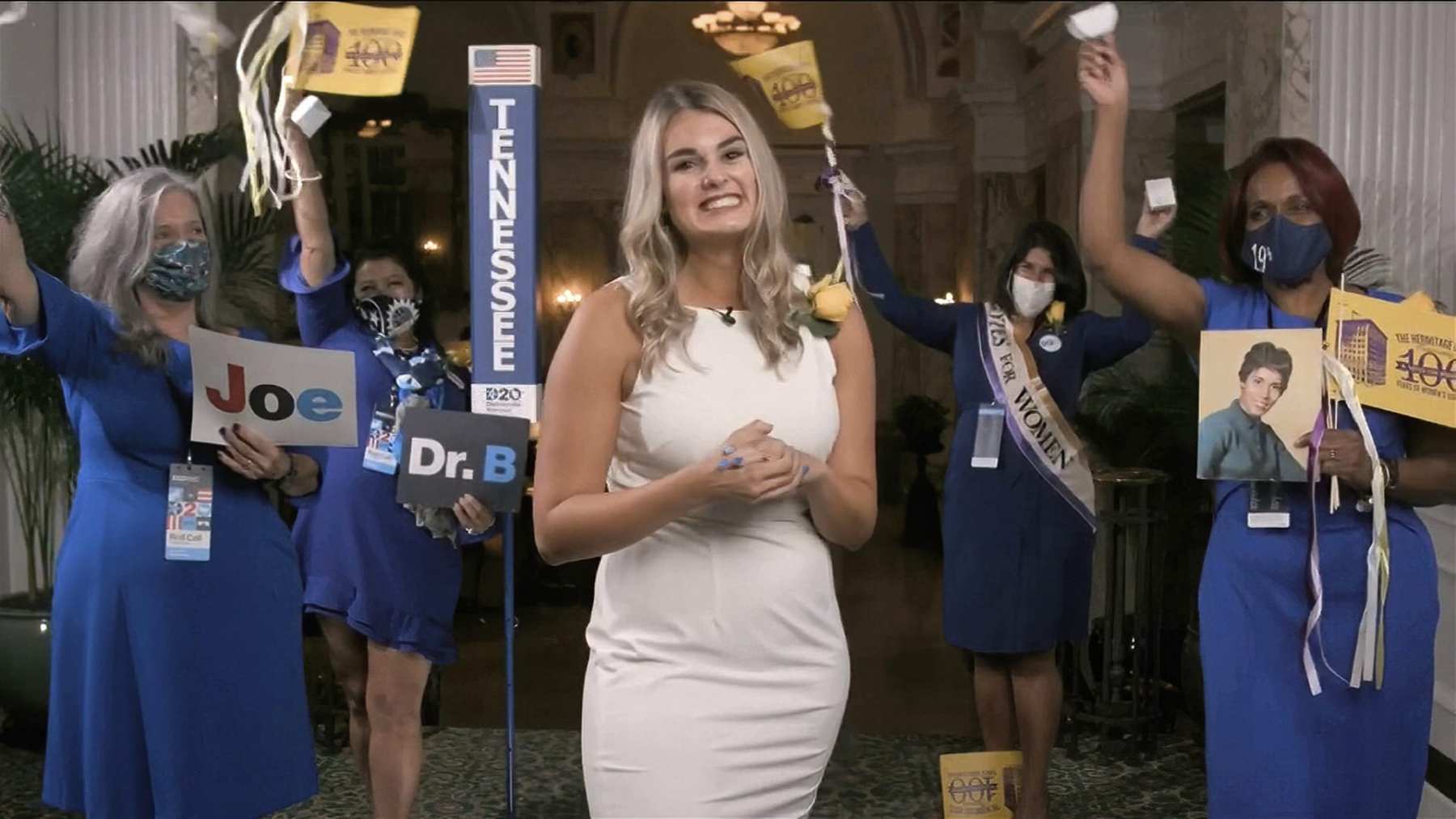Though Tuesday marked the 100th anniversary of the ratification of the 19th Amendment, the milestone and its significance ahead of the upcoming election were barely mentioned at the Democratic National Convention.
The 19th Amendment, which gave White women the right to vote in 1920, was only mentioned twice during the two-hour virtual programming. Chair of the DNC Tom Perez quickly acknowledged the anniversary and pointed out that Wisconsin was the first to ratify the amendment. And Keely Sage, the president of Tennessee College Democrats, later mentioned the centennial and her state’s role in its passage before casting the state’s 23 votes for Sen. Bernie Sanders and 50 votes for Joe Biden.
“One hundred years ago tonight, suffragists based here at the Hermitage Hotel in Nashville cheered as Tennessee became the 36th and deciding state to ratify the 19th Amendment, granting women the right to vote,” Sage said.
Among the dozens of speakers Tuesday — the theme of which was “Leadership Matters” — was Stacey Abrams, who spoke about how the country is currently confronting systematic voter suppression. Abrams, the former minority leader in the Georgia House of Representatives and the first Black woman to be on the major-party ticket in a U.S. gubernatorial race, said Joe Biden “will be a champion for free and fair elections.”
Former Acting U.S. Attorney General Sally Yates discussed Russian interference in our elections and President Donald Trump’s attempt to block U.S. Postal Service funding to limit people’s ability to vote by mail. And Alexandria Ocasio-Cortez, the youngest current member of Congress and its youngest woman ever elected, outlined a progressive vision of America in 90 seconds.
But no major party leaders or keynote speakers explicitly mentioned the 19th Amendment or the day’s significance, despite the fact that women now make up the majority of the American electorate.
The 19th Amendment declared that the right to vote for citizens of the United States should not be denied on account of sex, but this victory came at the expense of the Black women who fought alongside White suffragists. Throughout the South and in parts of the West, there were still policies and often violence that kept Black women from the polls. It wasn’t until the Voting Rights Act of 1965 that they won their right to vote.
Many Latinos, Native Americans and Asian Americans had to wait until 1975 to access the ballot when the Voting Rights Act was expanded, removing English language requirements. And the suffrage movement is still unfinished, particularly for Black, Latino and transgender voters.





